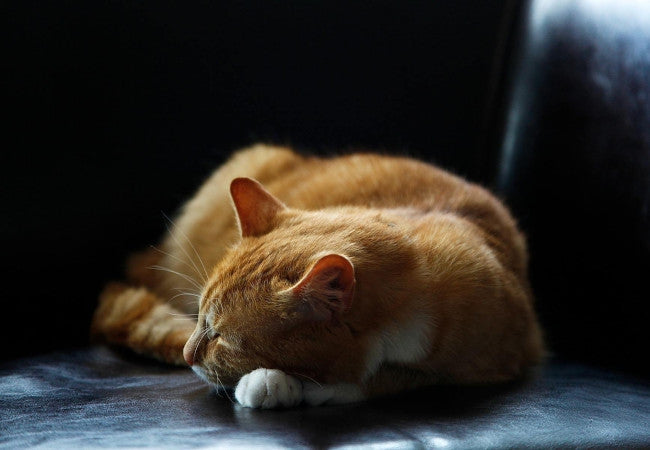Also known as osteoarthritis, arthritis occurs when the cartilage that covers the surface of joints wears away, eventually causing pain and inflammation in the joints.
Whilst most often associated with age, a cat of any breed can also develop arthritis as a result of injuries, developmental disorders, and excessive weight.
Signs of cat arthritis include:
- Trouble getting up, walking, climbing, jumping
- Avoiding the litter box
- Decreased activity levels
- Decreased grooming
- Becoming grumpy
- Vocalising
Although you cannot prevent feline arthritis, you can slow the progression of the condition and maintain a good quality of life for your cats.
Weight control
The heavier cats are, the worse the joint pain gets. Keeping your cats at a healthy weight can help alleviate painful symptoms related to arthritis. Here are our top 5 tips for helping your cats achieve and maintain a healthy weight.
Environment change
Provide your cats with a soft, toasty-warm bedding
Cold, damp weather can exacerbate the condition, and older cats with lower body fat may also feel arthritic symptoms more. Place soft and warm beds or blankets available for your cats to curl into in easy to reach, accessible locations during colder days.
Place multiple, low sided litter boxes for easy access
Getting in and out of the litter box may be painful for cats with aching joints. Your cats may need a litter box with shallow sides and you may also want to add additional boxes, especially in a large house.
Elevate food and water bowls
Many cats with arthritis have difficulty bending their neck to get to their food or water bowl. Slightly raised bowls can reduce stress of their neck and back, making mealtimes more enjoyable. Also, make sure your cats have water sources in more than one area of the house.
Provide your cats with steps near furniture and beds to aid in going up and down
Steps and ramps help make it much easier for your cats to come and go from their favourite spots, minimising the pressure on their hips, and will reduce their joint pain.
Grooming
Cats with arthritis tend to have stiff joints and reduced flexibility, and may find it more difficult to groom, which leads to a poorer coat condition. You may need to help by grooming your cats gently with a soft brush. Brush your cats, especially those areas that may be hard for them to reach.
Supplements
Joint supplements, such as fish oil and glucosamine, can help restore cartilage, easing the pain from arthritis. Always be sure to check with your vet before adding supplements to your cats' diet.
Source: PetMD
Featured image by Inge Wallumrød

